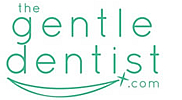Shelby Township Dentist Discusses Oral Health
At a recent presentation at our Shelby Township office I was asked questions about oral health and the frequency of toothbrushing.
I recommend brushing teeth at least 3 times per day for at least 1 minute preferably after eating and going to bed. This is important to eliminate the bacteria around the teeth and gums and to reduce the chance that food debris getting lodged between the teeth and causing cavities. As I have stated in an earlier Senior Living News article that the use of an automatic brush will dramatically increase the cleanliness of the teeth and gums. The handle is large to hold onto easily and it does the work for you. Just make sure you angle the bristles in between the gums and the teeth.
Question: I have heard of gum disease and read about it in your article. Could you explain what it is and how it could affect me? How do you get it and should I be concerned?
Answer: Gum Disease or pyhorrea is a bacterial infection that develops around the teeth. The bone level reduces and the teeth become loose and will eventually fall out if not treated. Over 70% of adults have the disease and loose their teeth as a result of it.
You may have bad breath, loose teeth, or gums that bleed when brushed or flossed. You may also have gum disease and not even experience any of these symptoms. Your dentist or hygienist are the most qualified to diagnose this bacterial infection and give you a treatment plan that will save your teeth.
At our examination we determine the extent of the infection using x-rays and an instrument that measures the level of bone loss.
We treat the infection by removing the bacterial toxins that cause the infection. This is done by cleaning the teeth below the gum line while you are numb. We use a special instrument that vibrates and sonically dislodges the tarter and bacterial plaque from the tooth surface. The treatment is very effective and the results are remarkable. After treatment your tissues and mouth feel clean and healthy. The teeth tighten and your body actually becomes healthier as the infection becomes controlled. Periodic (every 3-4 months) cleanings are critical to maintaining the health of the tissues after treatment is done.
There are recent studies that show that the bacteria in periodontal (gum) disease lodge in the heart arteries and contribute to hardening of the arteries. It has also been shown that when the disease is treated in diabetics, they have a reduction in the need for insulin.
If you have loose teeth, bleeding or red gums, bad breath or pain give your dentist a call to have the problem evaluated and treated.
Question: I was told by my doctor that I need to take antibiotics before I visit my dentist. Why do I need to do this since I am on so many medications already?
Answer: The mouth is a very dirty area full of bacteria and some viruses. Whenever your gums bleed there are bacteria that enter your blood stream. In a healthy individual these bacteria float around in the blood until they are killed by your immune system. It takes time for them to be killed and filtered.
If you have a heart condition such as a valve replacement, Mitral valve, history of rheumatic fever, or other heart abnormalities then antibiotics may be necessary before a dental procedure. When the bacteria enter the blood they can attach onto these abnormal heart valves and start to grow into what is known as a plaque. These plaques grow until they affect the function of the valve and when this happens it is known as an endocarditis and is a very serious problem and requires hospitalization. The possibility of this happening is quite low (less than 1:1000) but necessary precautions need to be taken. There are certain heart abnormalities that have a higher risk than others so the treating dentist needs to know what your heart condition is.
Antibiotics taken before a dental procedure will kill off the bacteria when they enter the blood and before they have a chance to build up and organize. The American Heart Association recommends 2 grams of amoxicillin one hour before dental appointment and for those allergic to penicillin they should take 600mg clindomycin one hour before their appointment. If you have questions if you should be pre-medicated ask your physician.
We will also pre-medicate patients who are diabetics or who have immune systems that are not functioning at full capacity and are prone to infections.
Shelby Township Dentist Discusses Oral Health
If you have any questions or want to place a question for Dr. Antolak please call our Shelby Township office at (586) 247-3500.
